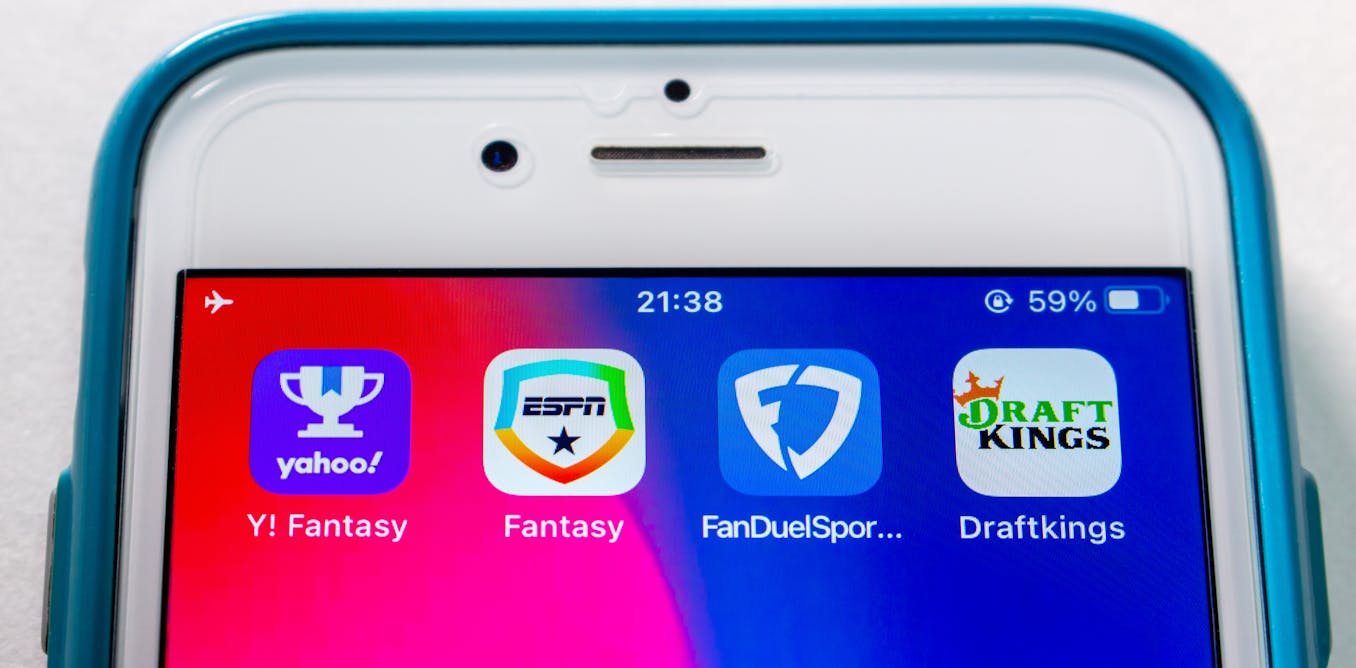Why are so many people obsessed with fantasy sports?

```html
The Fantasy Sports Phenomenon: Redefining Fan Engagement
What are Fantasy Sports?
Imagine stepping into the shoes of a coach or manager, hand-picking real-life athletes to build your dream team. That's the essence of fantasy sports! Within the rules of the game, you select players and earn points based on their real-world performance.
But it's not just about picking a team and hoping for the best. Think of it as a virtual stock market. A player's fantasy value fluctuates based on their performance. Shine on the field, and their value soars. Underperform, and it plummets. This dynamic element allows for strategic trading, adding a layer of complexity and excitement.
Success in this arena requires more than just fandom. It demands statistical analysis, keen player scouting, and shrewd decision-making in trades and team selection.
A Look Back: The Origins of Fantasy Sports
The genesis of this global phenomenon can be traced back to 1980 and the creation of Rotisserie League Baseball by Daniel Okrent and his friends, considered the granddaddy of all fantasy leagues.
Back then, participants meticulously tracked player stats using newspapers. Fast forward to today, and technology has revolutionized the game. Most major sports boast multiple fantasy platforms, formats, and enticing prizes.
In Australia alone, the number of fantasy sports players has doubled since 2021, reaching nearly 2.5 million. This explosive growth has unlocked exciting opportunities for content creation, new revenue streams, and even increased engagement with sports betting.
The Evolution of Fan Engagement
Fantasy sports, combined with social media and real-time data, have transformed how fans consume sports. Welcome to the era of "second screen consumption," where fans juggle fantasy apps, social media feeds, and live statistics while simultaneously watching the game.
This multitasking approach has redefined fan identity. No longer bound by loyalty to a single team, fans now navigate a dual existence, rooting for both their favorite team and their meticulously crafted fantasy squad. This often leads fans to watch games they wouldn't normally consider, simply to track their fantasy players.
According to a News Corporation Australia study, the true driving force behind fantasy sports participation is community engagement. Bragging rights, social connection, and learning more about the sport trump even the allure of prizes. Connecting with others is the name of the game.
Media's Embrace of Fantasy Sports
With fantasy engagement extending beyond game day, fans remain invested throughout the off-season, analyzing trades, following pre-season developments, and strategizing for the next competition. This year-round engagement fuels extended media coverage and a constant flow of new content.
Fantasy sports complements traditional media by offering alternative perspectives, such as podcasts and short-form content, keeping fans hooked throughout the week. It's even driving viewership for newer formats like AFLW by boosting fan engagement.
The Lucrative World of Fantasy Sports
Fantasy sports is big business. In 2013, Forbes valued the NFL fantasy football market alone at a staggering $US70 billion, dwarfing the NFL's $US11 billion revenue in 2021. This underscores the massive role fantasy plays in the global sporting landscape.
Revenue streams flow from sponsorships, advertising, premium content fees, in-app purchases, and related entertainment products. Major brands pour millions into targeted ad campaigns to capture this highly engaged audience.
The Blurred Lines: Fantasy Sports and Sports Betting
The prevalence of gambling ads on fantasy platforms raises concerns about the link between the two. While fantasy organizations emphasize the skill-based nature of their games, contrasting it with the chance-based nature of betting, concerns persist.
Studies on the relationship between fantasy sports and gambling offer mixed results. Some indicate a correlation between fantasy participation and increased gambling activity, while others suggest fantasy sports can be a positive alternative, driven by social benefits rather than monetary gain.
The debate continues, but one thing remains certain: fantasy sports are here to stay. Their ability to deepen fan engagement, build communities, and enhance the sports viewing experience ensures they'll remain a powerful force in the world of sports.